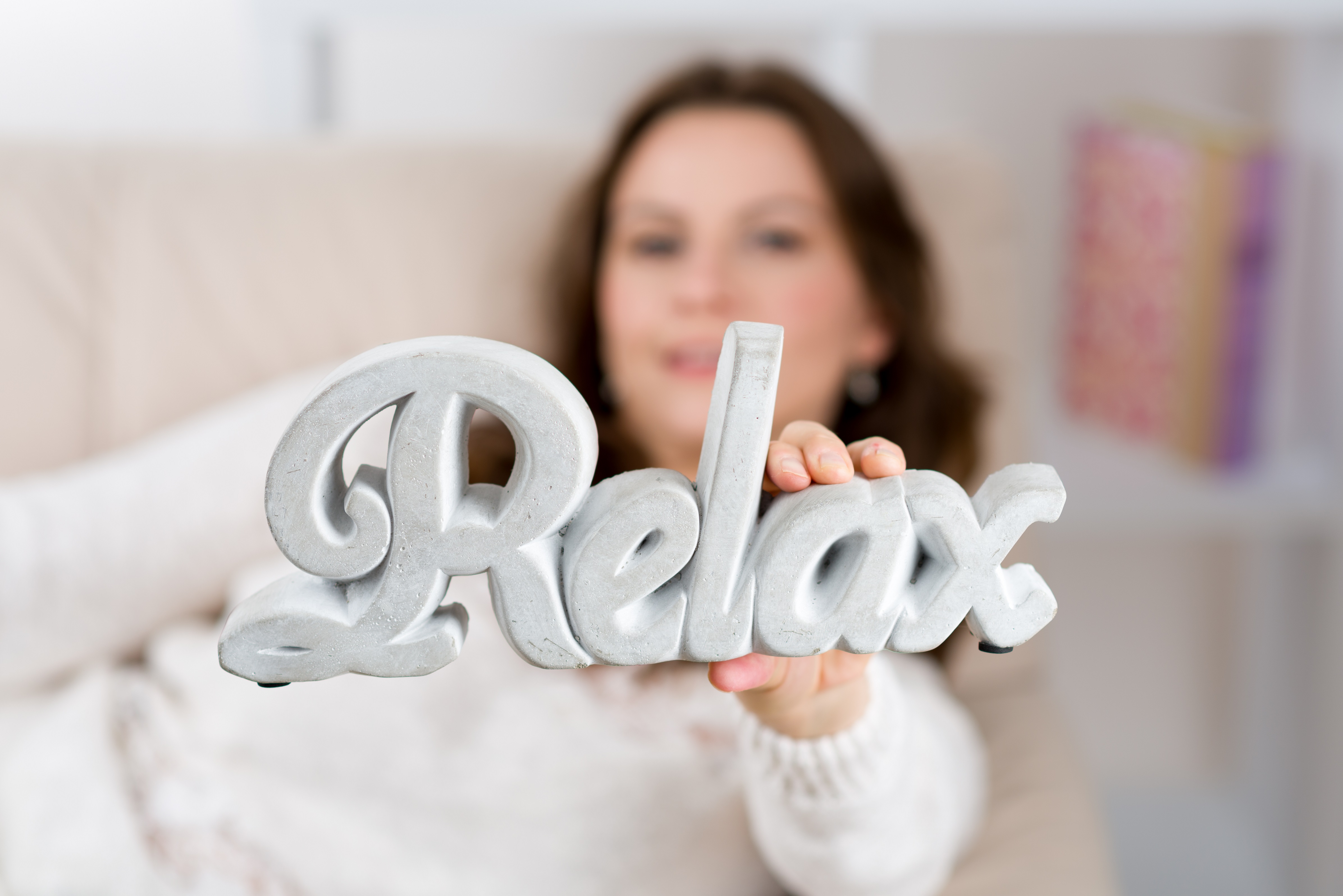In many cases, you can dramatically reduce the amount of stress you are experiencing by changing only one thing, the way you think – your attitude. As a popular saying goes, “An attitude is an inward thought that wiggles its way out!” Nobody says changing the way you think is easy to do and it does involve adjusting your view of things and finding ways to responding to stress.
Relax – there are many wonderful techniques that can help you recognize and adjust behaviors that quickly escalate in stress, as well as help minimize the negative consequences of stress that has already occurred. Experiment using the tips below, and you will soon develop many helpful strategies that suit your personality and needs.
Look out for warning signs. As we’ve discussed above, stress is a very real chain of body reactions, which manifests in slightly different ways in different people. It’s really helpful to take a note of your personal collection of warning signs, such as tension headaches or jaw clenching. Are you zoning out? Are the little things driving you to distraction? Do you have difficulty “turning off” at the end of the day? Does it feel like the day never ends? When you notice any of these things, consciously and on purpose, stop. Just stop. Take a breath and then make a conscious effort to relax. Even if it means you only have time for 2 or 3 nice, even breaths.
Know your stress triggers. Have you noticed that working with particular people, setting tight unrealistic deadlines or dealing with an annoying security person makes your stress levels skyrocket? If there isn’t a way to solve these so-called stress triggers, do the best you can to stay away from these triggers. If you can’t give yourself an extra couple of days to work on a project or send your personal assistant to the meeting instead of participating, at least learn to calm yourself down before the stressful occurrence and reduce unpleasant anticipation. A cup of mint tea, 3 nice, even breaths, a couple of stretches or a “it is what it is” way of thinking can be just the ticket to see you through it.
Routine is your friend. This is pure physiology: the brain tends to send much less stress signals if it knows what’s coming next. Establishing daily routines and clearly allocating certain parts of your day to certain task is a very helpful stress management technique underappreciated by many. We aren’t only talking about work, though! For example, by waking up at relatively the same time every day and planning your meals ahead of time, you are building a known, and thereby more relaxing, routine in which your mind and body know what to expect.
More great ideas coming your way in our next (and final) blog in this series. Hope you’ll check back in on Monday!







